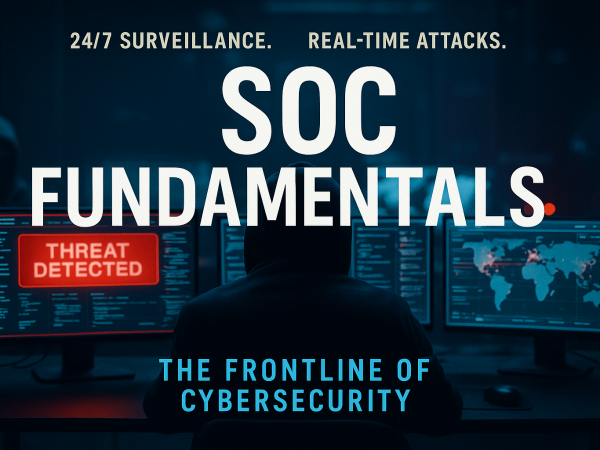Introduction
The Offensive Security Certified Professional (OSCP) and CompTIA PenTest+ are two prominent certifications in the field of penetration testing and offensive security. Both aim to validate skills in identifying, exploiting, and mitigating vulnerabilities, but they differ in scope, difficulty, target audience, and industry recognition.
1.Overview of OSCP and COMPTIA Pentest+
OSCP (Offensive Security Certified Professional)
- Provider: Offensive Security
- Focus: Hands-on penetration testing skills with a strong emphasis on methodology, persistence, and real-world attack scenarios.
- Difficulty Level: Considered one of the more challenging certifications in cybersecurity, requiring extensive preparation and hands-on practice.
- Requirements: Basic understanding of networking, Linux, and scripting is recommended before starting. OSCP is aimed at individuals who have foundational knowledge and wish to delve deeply into penetration testing.
COMPTIA Pentest+
- Provided by: CompTIA
- Focus: Broad penetration testing knowledge, combining theoretical and practical skills.
- Difficulty: Moderate, accessible to those with foundational IT and security knowledge.
- Target Audience: Entry-level to intermediate cybersecurity professionals looking to validate penetration testing skills.
2. Exam Format
OSCP Exam
Documentation Requirement: Offensive Security emphasizes report writing as part of the certification, which is essential for successfully completing the exam. A well-documented report outlining the methods and approaches used is required.
Duration: 24-hour practical exam.
Format: Candidates are required to exploit a series of machines within a time frame, each carrying different point values. A total of 70 points out of 100 is needed to pass.
Environment: Realistic virtual environments with varying levels of difficulty, emulating real-world scenarios.
Pentest+ Exam
- Exam Duration: 165 minutes.
- Structure: 85 multiple-choice and performance-based questions.
- Focus Areas: A mix of theoretical knowledge and some hands-on simulations of penetration testing scenarios
- Pass Criteria: Achieve a passing score (750/900).
3. Course Content and Learning Path
OSCP
- Modules Covered: OSCP follows a structured path covering areas such as enumeration, exploitation, privilege escalation, web application attacks, buffer overflow, and client-side attacks.
- Training Material: The OSCP’s PWK (Penetration Testing with Kali Linux) course offers extensive lab access, a structured syllabus, and a wealth of training materials aimed at building an attacker mindset.
- Skill Emphasis: OSCP emphasizes deep technical skills in exploitation, pivoting, and persistence. The course teaches you to be comfortable with various real-world scenarios, instilling the mindset of “try harder.”
COMPTIA Pentest+
Training Material: Self-study resources, instructor-led training, and books like the official PenTest+ study guide.
Prerequisites: Familiarity with basic IT and cybersecurity concepts (e.g., Security+ or equivalent experience).
Preparation Approach:
- Focus on theoretical knowledge of penetration testing processes and hands-on use of common tools.
- Practice using simulated environments and test-prep platforms.
4. Career Impact and Industry Recognition
OSCP
- Industry Perception: OSCP is widely recognized and respected in cybersecurity, especially for roles in penetration testing, red teaming, and security consulting. Many employers value OSCP certification as a mark of technical capability.
- Career Path: Ideal for individuals aiming to work in offensive security roles like Penetration Tester, Security Analyst, Red Team Member, or Security Consultant.
COMPTIA Pentest+
- Perception: Recognized as a strong entry- to mid-level certification.
- Value: Less rigorous than OSCP but valued for its comprehensive approach to penetration testing and alignment with compliance standards.
- Preferred by Employers: Seen as a good starting point but often complemented by more advanced certifications like OSCP or CISSP.
5. Which Certification to Pursue?
Consider OSCP if:
- You aim to establish a career in penetration testing, red teaming, or any offensive security role.
- You have a strong foundation in Linux, networking, and basic scripting and are ready to commit to an intensive learning experience.
- You’re seeking a certification with a reputation for rigor and industry recognition.
Consider Pentest+ if:
- You are new to penetration testing or transitioning from IT or general cybersecurity.
- You want a certification that combines theoretical knowledge with some practical skills.
- You are aiming for entry- to mid-level roles or need a certification aligned with compliance standards.
6.Salary Comparison
OSCP
- Average Salary Range: $85,000–$130,000 annually (depending on experience and location).
- Top-Tier Roles: Professionals with OSCP often command higher salaries due to the certification’s focus on practical penetration testing skills and hands-on expertise.
- Factors Influencing Salary:
- Advanced technical skills demonstrated by passing the challenging OSCP exam.
- Experience in penetration testing, vulnerability analysis, and red team operations.
- Working in industries like finance, technology, or government, which value offensive security skills.
CEH
- Average Salary Range: $70,000–$100,000 annually.
- Earning Potential: Competitive for entry-level to intermediate roles but may require additional certifications for higher-paying positions.
7.Job Roles
OSCP Job Roles
OSCP-certified professionals typically work in offensive security and roles that require advanced penetration testing and hands-on skills, such as:
- Penetration Tester:
- Conduct simulated attacks on networks, applications, and systems.
- Identify vulnerabilities and recommend remediation strategies.
- Red Team Operator:
- Simulate real-world attacks to test an organization’s defenses.
- Work closely with blue teams to improve incident response capabilities.
- Vulnerability Analyst:
- Analyze systems for vulnerabilities and assist in remediation efforts.
- Create detailed reports for technical and non-technical stakeholders.
- Security Consultant:
- Provide expert guidance on securing systems and applications.
- Perform security assessments and penetration tests for clients.
- Ethical Hacker:
- Use offensive techniques to identify and mitigate threats.
Pentest+ Job Roles
Common Roles:
- Penetration Tester
- Security Analyst
- Vulnerability Management Specialist
- Junior Ethical Hacker
Broad Application: Suitable for roles that blend penetration testing with broader security tasks or compliance.
Conclusion
The OSCP and PenTest+ certifications cater to different audiences and career paths. OSCP is ideal for advanced technical roles and is highly respected in offensive security, while PenTest+ serves as a solid entry-level credential with broader applicability. Your choice should depend on your current skill level, career goals, and preferred learning approach.




